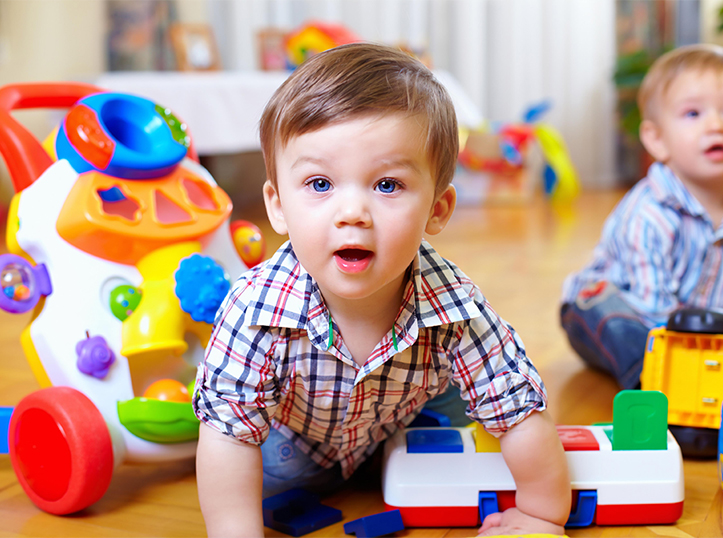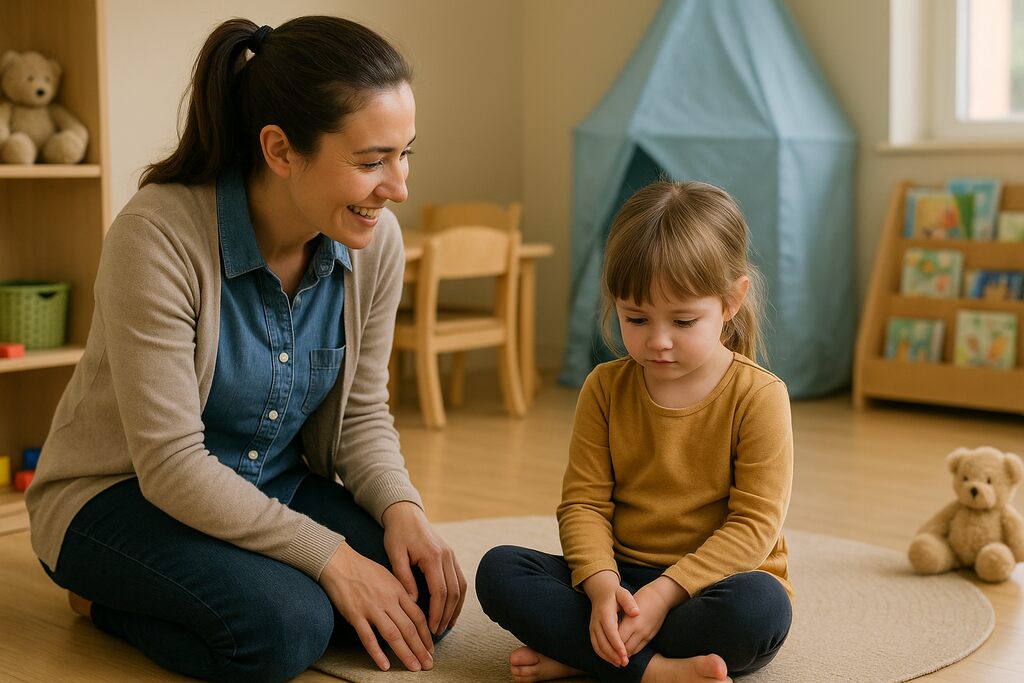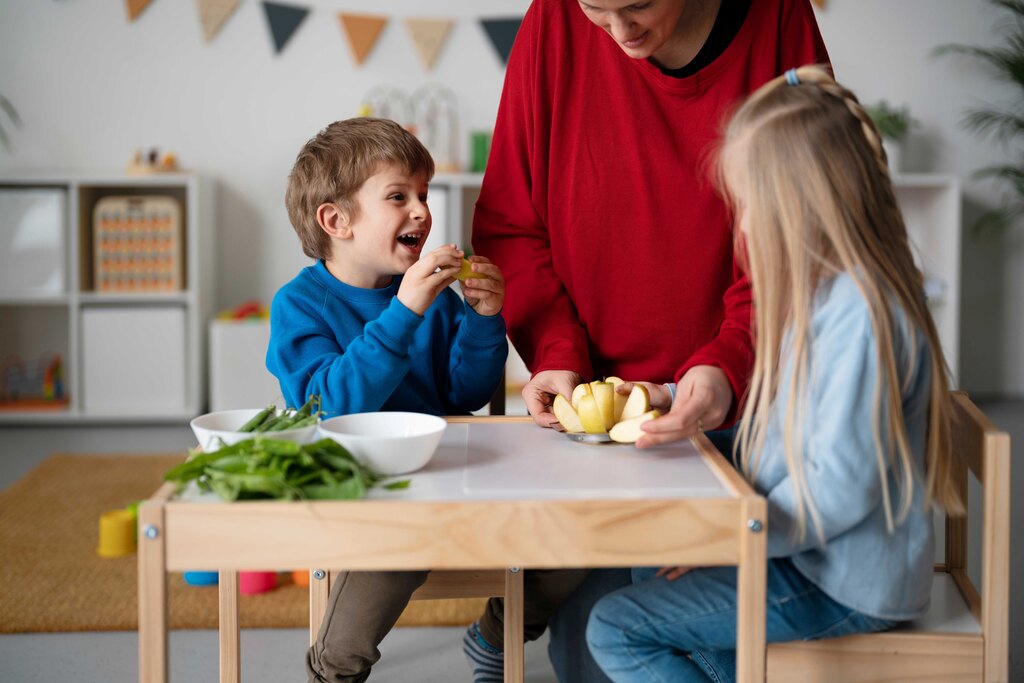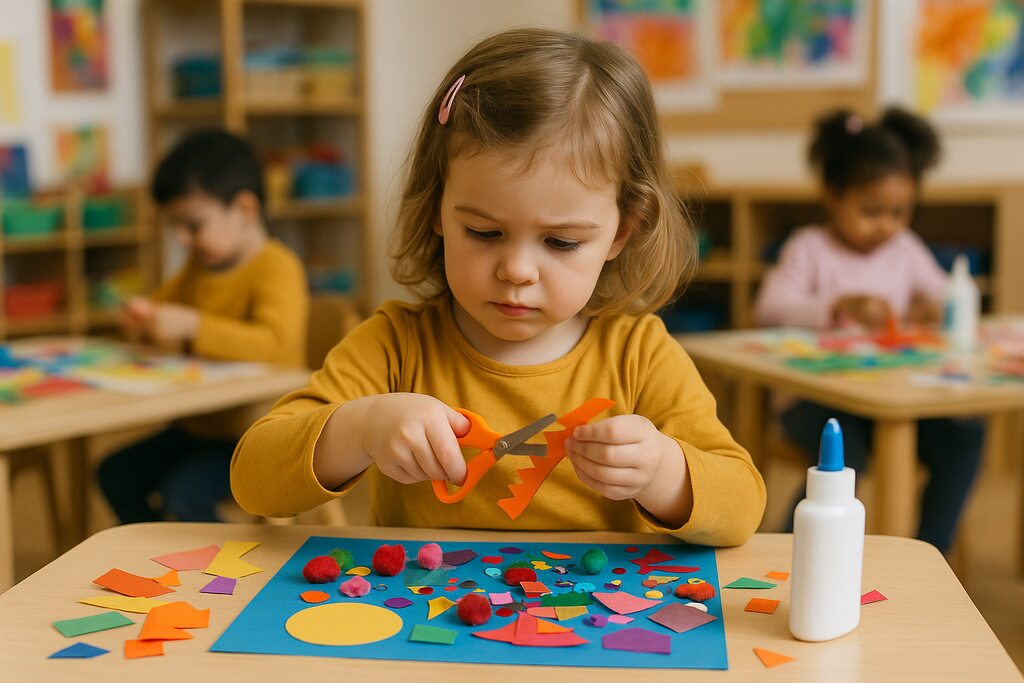By using our website, you agree to the use of cookies as described in our Cookie Policy
Early Childhood Education Info & Tips for Deerfield Area Parents
Helping Children Understand Feelings at a Deerfield Daycare Center
Kids sense every mood in the room. Laughter, tears, frustration—none of it goes unnoticed. They react fast, copy what’s around them, and push limits to see what happens. Comfort matters. Emotional skills don’t just appear; they build up in the middle of all this action.
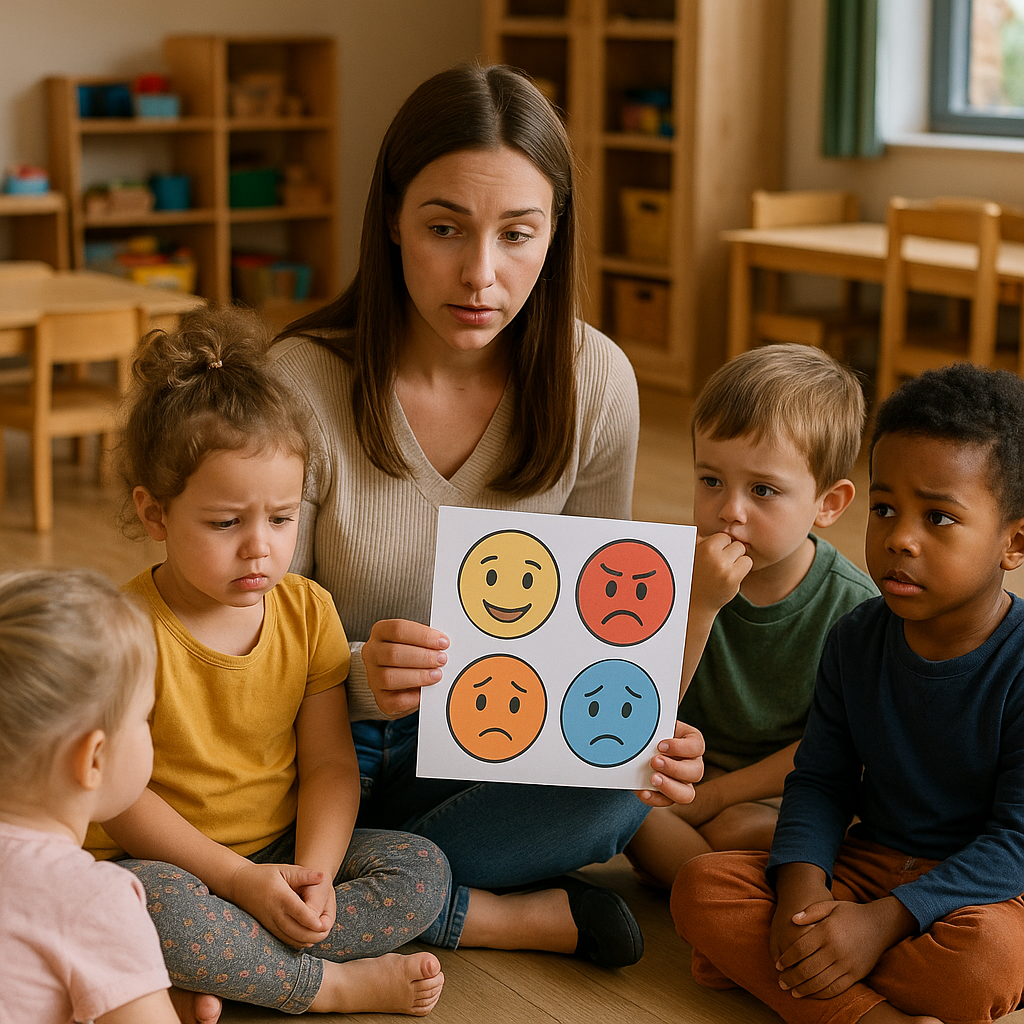
Emotional Skills Start Early
Walk into any strong preschool program and you’ll see it. Children who know their feelings don’t just avoid meltdowns. They make friends faster. They bounce back after a tough moment. They ask for help instead of shutting down. These skills don’t come from lectures or worksheets. They come from real moments: sharing a toy, waiting for a turn, missing a parent at drop-off. Every day brings a new test. The right support turns those tests into growth.
At Deerfield’s top centers, the curriculum doesn’t just check boxes. It builds emotional awareness into every routine. Our teachers notice when a child clings to a favorite blanket or hangs back from a group. They step in, not with lectures, but with simple words and calm presence. Over time, children learn to name what they feel. They start to see that feelings change, and that’s normal.
Stories and Play Make Feelings Real
Kids don’t learn emotions from charts. They learn from stories, play, and the world around them. Picture books with characters who get scared, happy, or frustrated open the door. Puppet shows turn big feelings into something kids can laugh about. Songs and rhymes about feelings stick in their heads long after circle time ends. Role-play lets them try out new responses in a safe space. Art projects turn colors and shapes into a language for what’s inside.
- Books with real, messy emotions
- Puppets that act out arguments and apologies
- Songs that name feelings out loud
- Role-play with friends: taking turns, saying sorry, making up
- Art that lets kids show anger, joy, or worry without words
The toddler program weaves these tools into every day. No one sits still for a lecture. Instead, kids jump in, play, and absorb what matters. They don’t even realize they’re learning. That’s the point.
Coaching in the Moment
Big feelings don’t wait for a lesson plan. A child grabs a toy. Another shouts. Tears start. In pre-kindergarten classrooms, teachers don’t ignore these moments. We pause. We kneel down, look a child in the eye, and ask, “What’s going on?” We help kids find the right words. “You’re mad because you wanted that truck.” “You’re sad because your friend left you out.”
This isn’t about fixing every problem. It’s about giving kids the tools to handle the next one. Over time, children start to pause before lashing out. They try words before hands. They notice when their own bodies get tense or their voices get loud. That’s real progress.
Empathy Grows in Groups
Put a group of toddlers together and you’ll see empathy in action, or the lack of it. One child falls. Another stares, unsure. A third offers a hug or a toy. In infant and toddler care, these moments happen all day. Our teachers guide children to notice. “Look, your friend is crying.” “She’s smiling because you shared.”
Empathy doesn’t come from a rulebook. It comes from practice. Children learn to read faces, listen to tone, and spot when someone needs help. They start to care about what others feel, not just what they want. That’s the root of real friendships and strong communities.
Everyday Challenges Build Strength
Separation at drop-off. Waiting for a snack. Losing a game. These aren’t just small bumps: they’re training grounds. Children who face these moments with support get stronger. They learn that feelings come and go. They see that it’s okay to be upset, but there are ways to move forward. Teachers don’t rush to smooth over every problem. They stand by, offer a hand, and let kids work through it. That’s where confidence grows.
What to Look for in a Daycare
- Teachers who talk about feelings, not just behavior
- Spaces that let kids calm down when they need it
- Daily routines that include stories, music, and art about emotions
- Staff who model patience and kindness, even on tough days
- Programs that value social growth as much as letters and numbers
Visit a center and watch how adults handle conflict. Listen for words like “frustrated,” “excited,” or “proud.” Look for children comforting each other or solving problems together. These signs matter more than any test score or fancy toy.
Schedule a Visit to Our Deerfield Learning Center
Ready to give your child the gift of emotional intelligence? Contact Creative Paths Learning Studio at 847-372-0079 or schedule a tour to learn more about our emotion-focused curriculum.
‹ Back


